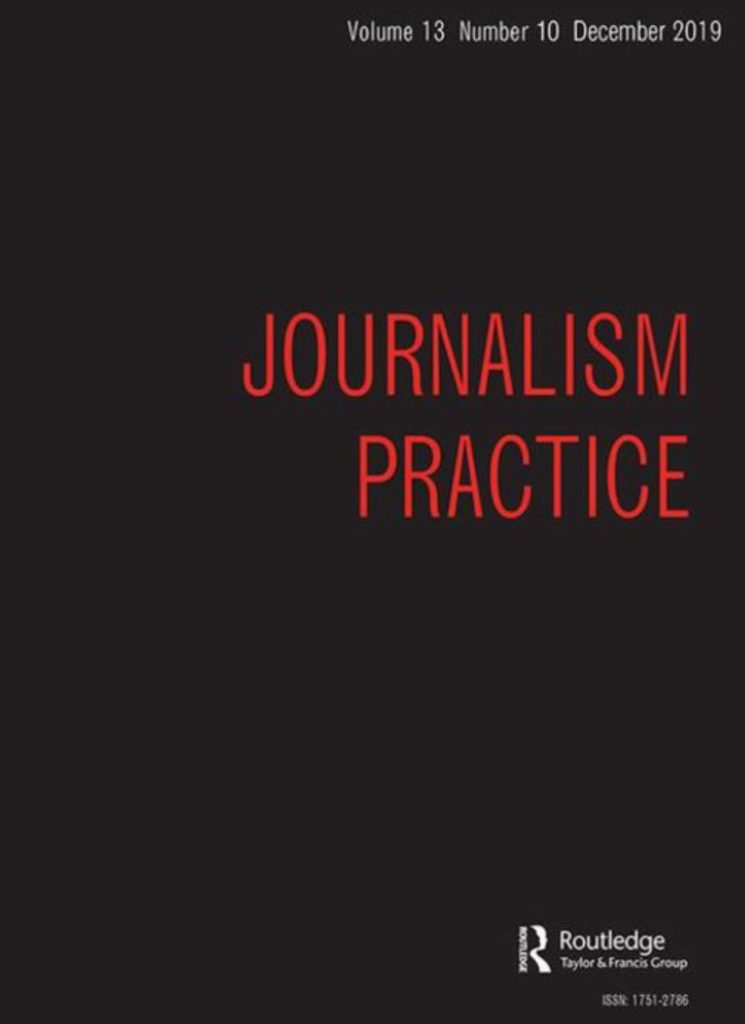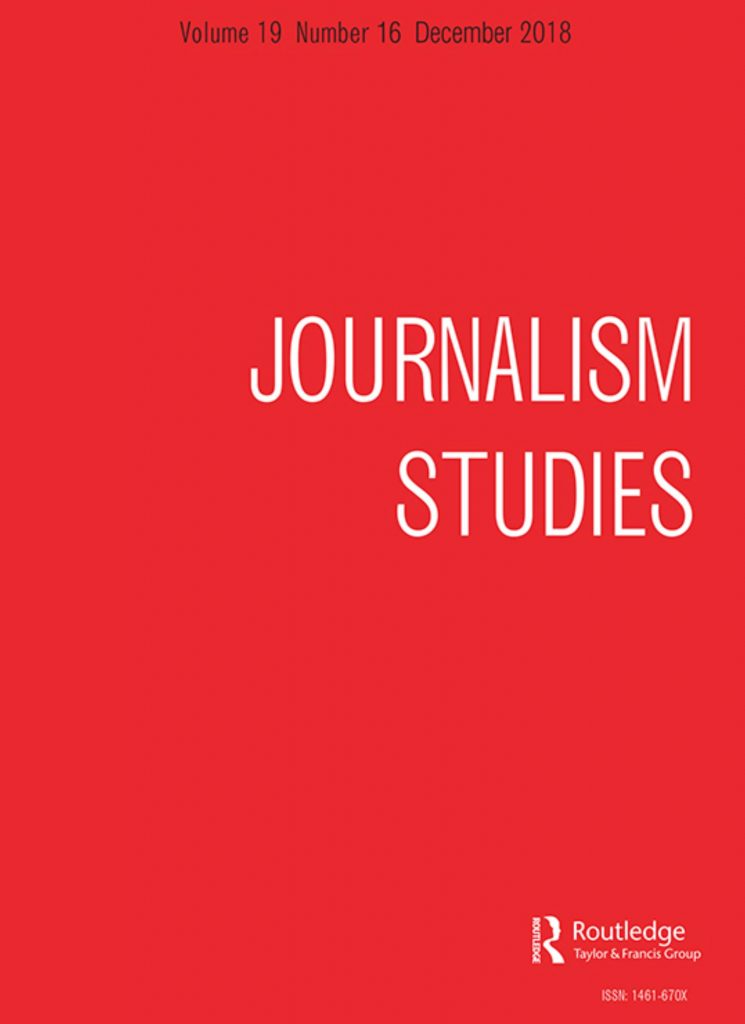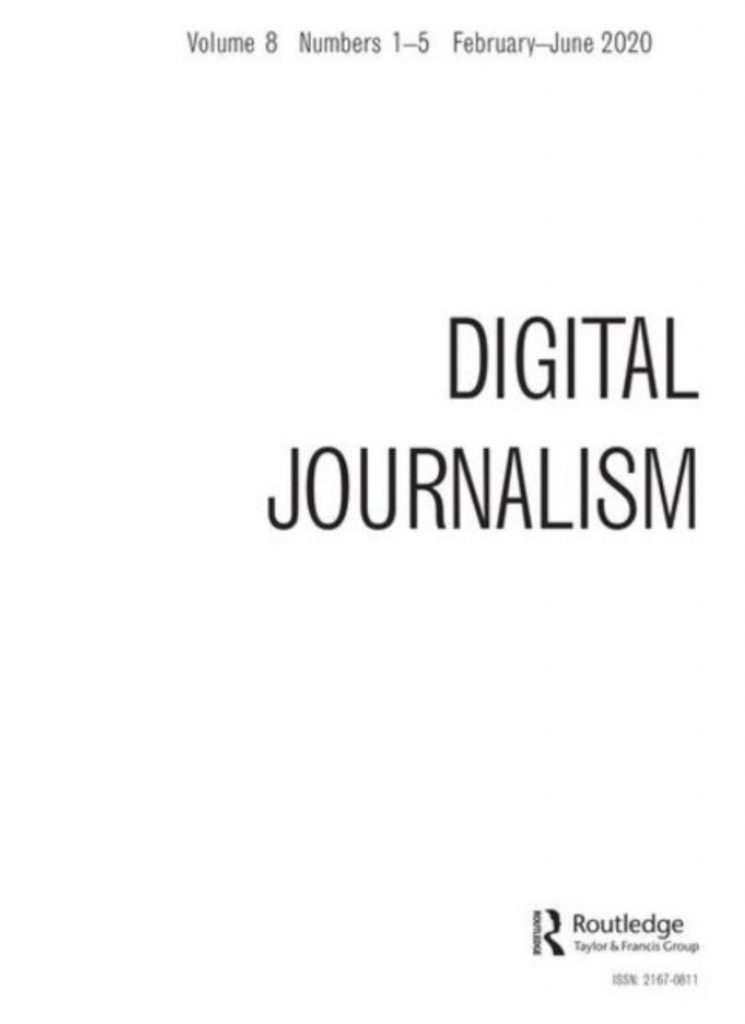
Note: This schedule may be changed in the run up to the conference.
Day 2 – Friday 15th September
8.30am – Registration (Coffee & Breakfast)
9.15am – Day 2 Welcome (Dr. Matt Walsh & Dr. Savyasaachi Jain)
9.30am – Professor John Hartley, University of Sydney
Gareth Jones’s mother and the future of journalism. Truth-warrior or ‘Welsh Message’?
(Video presentation and Zoom Q&A)
10.30 – Coffee Break
11.00am – Breakout One
| Room 1.05 | Room 1.06 | Room 1.07 | Room 1.08 | Room 1.09 | Room 1.10a | Room 1.10b | Room 2.18 |
| Ukraine War Chair: Stuart Allan | Alternative Media Chair: Shirish Kulkarni | Science and Health Chair: Richard Thomas | Issues with A.I. Chair: Matt Walsh | Journalism Education Chair: Damian Carney | Polarisation (3) Chair: Mike Berry | News Use Chair: Richard Tait | Gender and Diversity Chair: Nadia Haq |
| Personalized, peace/war journalism on Twitter: The Russo-Ukranian War through the lens of political journalists – Nina Fabiola Schumacher, Prof. Christian Nuernbergk, Prof. Kristin Shi-Kupfer Navigating the complexities of the war in Ukraine. Risk and resilience of Ukrainian women journalists – Oleksandra Hrybenko Open-sourced reporting in a warzone: Mapping the relationship between citizen journalism, professional journalism, and open-source intelligence in Ukraine and beyond – Keegan S Clements-Housser, Dr. Linda C Steiner The struggle between advocacy journalism and traditional public interest journalism in the coverage of the Russia-Ukraine conflict – Prof. Monica A Attard | The social skills of alternative media – Prof. Tine Ustad Figenschou, Prof. Karoline Andrea Ihlebæk Opinion and explainer or reported stories from the ground – How are Indian prime-time TV anchor-journalists using YouTube to do alternative independent journalism – Sambit Pal Can tech solve it? Analyzing Indian alternative journalists’ efforts to counter misinformation: – Darsana Vijay Covering deprivation in India: theoretical and practical challenges – Dr. Nalini Rajan | Misinformation, inequality, and hostility: How health journalists conceive of their roles amid current challenges – Amanda Hinnant, Rachel Young, Prof. María Len-Ríos (Re)constructing Science – (Pseudo-)Science narratives in journalism and counter publics – Saïd Unger, Svenja Boberg, Prof. Thorsten Quandt Where is local science news? The over-dependence on international science sources in Qatari media and its implications – Dr. Anto Mohsin, Prof. An Nguyen | Deepfake applications for journalism: A technology at the crossroads of rejection and acceptance – Prof. Alexander Godulla, Prof. Christian P. Hoffmann, Daniel Seibert, Hannah Lea Ötting The algorithms behind the headlines revisited – How ChatGPT re-redefines the core skills of human journalists – Professor Arjen Van Dalen Following the critical AI beat: European journalists covering AI errors and algorithmic profiling – Dr. Philip Di Salvo Deepfakes in Journalism. Risks and Opportunities, Prevention and Intervention – Dr. Patric Raemy, Prof. Manuel Puppis | Inside the propaganda training ground – how a new generation of Russian journalists is being educated for Moscow’s information war – Kate de Pury Teaching Investigative Journalism in a Transnational University in China – Dr. Diana Garrisi, Jiahui Huang Examining the Role of Journalism Educators in Solving the News Desert Crisis – Teri Finneman, Meg Heckman, Prof. Stephen Wolgast Self-censorship in Journalism Education: the impacts of Bolsonarism and social surveillance in Brazil – Dr. Ivana Ebel, Dr. Janara Nicoletti | News Sharing and Partisanship: Tracking News Outlet Repertoires on Twitter over Time – Prof. Axel Bruns, Dr. Felix Münch, Dr. Ehsan Dehghan, Laura Vodden Renegotiating the press-police relationship in four liberal democracies – Prof. Tim P Vos, Dr. Carolyne Lunga, Prosper Senyo Breaching BBC impartiality rules: Journalism identity, institutional networks and social media – Dr María Luengo, Dr Teresa Gil-López Global Television News in the Age of Nationalism and Populism: A Survey of Recent Changes in International and Transnational Broadcasting – Prof. Chris Paterson, Jasmin Surm | The normalization of changing news use: A longitudinal study of what drives changing news repertoires among young adults – Prof. Chris Peters, Dr. Josephine Lehaff, Julie Vulpius, Prof. Kim Schrøder Altering news use to deal with a toxic news environment – Prof. Ike Picone, Dr. Ruben Vandenplas, Dr. Pauljan Truyens, Dr. Sarah Vis Discouraging News Consumption: News Avoidance Cultivation as a Threat to Journalism – Dr. Matt Carlson Raising relevance, lowering barriers: Journalists’ solutions for news avoidance – Dr. Ruth Palmer, Prof. Stephanie Edgerly | The Suburban News Desert: How the Media Punishes Marginalized Communities with Crime Coverage – Scott A. Brinton, Mario A. Murillo, Prof. Aashish Kumar Reporting on trans issues in an intensely transphobic Russia – Wendy S. Sloane ‘The New Normal’: Russian media and the state-sanctioned homophobia – Dr. Aleksandra Raspopina News literacy revised for teenagers. Towards a news knowledge scale for youngsters – Dr. Kristin Van Damme, Dr. Edward De Vooght, Dr. Jan Boesman |
12.30pm – Lunch
1.30pm – Breakout 2
| Room 1.05 | Room 1.06 | Room 1.07 | Room 1.08 | Room 1.09 | Room 1.10a | Room 1.10b |
| Pioneer Journalism Chair: Shirish Kulkarni | Harassment (2) Chair: Mel Bunce | Newsgathering (2) Chair: Richard Tait | Using Data Chair: Steen Steensen | Local Journalism Chair: Karin Wahl-Jorgensen | Media Platforms Chair: Henrik Bodker | Journalistic Roles Chair: Kate de Pury |
| The present future: On the role of pioneer journalism in establishing communicative AI – Prof. Andreas Hepp, Prof. Wiebke Loosen Journalism as technology-inspired engagement of the information elites? Exploring the futures knowledge of entrepreneurial pioneer journalists – Juho Ruotsalainen “Join the coalition”: Collective action spaces in pioneer journalism and the reimagining of journalistic epistemology – Dr. Bissie Anderson | ‘When I Stepped Up’: Journalists Working Outside of Organizations to Address Their Harassers – Dr. Avery E. Holton, Dr. Valerie Belair-Gagnon Understanding the Efficacy of Online Bystander Intervention when Journalists are the Targets – Dr. Kathleen Searles, Dr. Rebekah Tromble Local Journalists’ Lived Experience of “The Media” Label – Dr. Joy M. Jenkins, Dr. Nick Mathews, Prof. Damon Kiesow Arab Journalists and the Social Media Threat – Dr. Zahera Harb, Dr. Rana Arafat | A new model for journalism culture in the Caribbean: The Controlled Watchdog – Dr. Aurora K Herrera From shoe-leather journalism to sedentary journalism: An analysis of recent newsroom trends and practices – Troels G. Østergaard, Friederike N. Felbo Google as Journalist’s Automated Research Assistant? The Impact of Algorithmically-Driven Search Results in Journalistic Information Gathering Routines – Nele Goutier, Yael de Haan, Sanne Kruikemeijer, Sophie Lecheler Knowledge can wait? The epistemic conversion of new beat reporters – Tal Mishaly, Prof. Zvi Reich | What are data-informed news organisations made of? Sense-making and data imaginaries of Finnish news professionals – Prof. Laura Ahva, Margareta Salonen, Prof. Karoliina Talvitie-Lamberg, Liisa Ovaska Audience Logics in Global Data-driven Journalism: Searching for Substantive Engagement – Dr. Jason A. Martin, Dr. Lindita Camaj, Dr. Gerry Lanosga The audiences’ expectations toward transparency of data journalism – Dr. Colin Porlezza, Dr. Marília Gehrke, Dr. Ester Appelgren, Dr. Jack Rosenberry Should journalists learn to code? – Clare Spencer | What happens when the news is shut off? Non-journalistic information flows in Canadian rural communities – Tyler W. S. Nagel, Dr. Geoffrey Hobbis, Prof. Marcel Broersma The informed citizen in local communities: A user-centered study on how citizens use and value local journalism – Prof. Yael de Haan, Rijk van den Broek Accommodating the challenges of local journalism: L’Eco di Bergamo’s actions understood from a longitudinal perspective – Dr. Laura Amigo Placefulness, Placelessness, and the Different Social Values of Local and Community Media – Dr. Thomas J. Billard | There is No Such Thing as Convergence: Divergence as an Explanatory Framework for Digital Journalism – Dr. Ryan J. Thomas When content is king but the battle for the castle has been lost: The moral crisis in digital news distribution – Dr. Sherine P. Conyers Infrastructure (re)capture beyond the platforms. How journalism is losing institutional power through the digital distribution chains – Prof. Helle Sjøvaag, Dr. Ragnhild Kr. Olsen, Dr. Raul Ferrer-Conill The Philanthrocapitalism of Google News Initiative in Africa, Latin America, and the Middle East – Empirical Reflections – Dr. Mathias-Felipe de-Lima-Santos, Dr. Lucia Mesquita, Dr. Allen Munoriyarwa, Dr. Adeola Abdulateef Elega | How audiences and journalistic actors negotiate innovation and change: Considering the role-expectation relationship – Dr. Sandra Banjac, Dr. Frank Harber Feeding off each other? Journalistic role negotiations between local and foreign reporters in Nairobi – Cecilia Arregui Olivera What makes reporting worthwhile? Conceptualizing how journalists create meaning in work – Dr. Gunhild R. Olsen Role conflicts and coping strategies in communication practice in times of blurring boundaries between journalism, public relations and advertising – Gisela Reiter, Prof. Uta Russmann, Prof. Sabine Einwiller, Prof. Jens Seiffert-Brockmann, Lina Stürmer |
3.00pm – Coffee Break
3.30pm – Breakout 3
| Room 1.05 | Room 1.06 | Room 1.07 | Room 1.08 | Room 1.09 | Room 1.10a |
| Social Media (3) Chair: An Nguyen | News Usage (2) Chair: Shirish Kulkarni | Newsgathering (3) Chair: Richard Tait | Local Journalism Chair: Marcel Broersma | Journalistic Roles (2) Chair: Henrik Bodker | Digital Media Chair: Zahera Harb |
| Of TikTokers, Team Media, Finance Gurus, and the Party Press: Exploring membership claims of non-traditional journalistic actors – Dr. Phoebe Maares, Kim Löhmann, Dr. Daniel Nölleke Social media, trust and news consumption: comparative analysis of France, United Kingdom and Spain – Dr. Livia García-Faroldi, Dr. Laura Teruel-Rodríguez The costs and benefits of Twitter’s impact on the institutional values and practices of news journalism – Dr. Chrysi Dagoula | Unequal from the start? The socialization of US teens into repertoires of news consumption – Prof. Stephanie Edgerly Paywalling journalism: Newsroom Ethnography in a Finnish Tabloid – Pauliina Penttilä Translating Data: Strategies for News Audience Engagement Across Social Media Platforms – Dr Astrid Vandendaele, Dr Tomás Dodds Occupationally Precarious or Socially Cohesive? Journalistic Epistemology in U.S. Rural Journalism – Gregory P. Perreault, Jessica Walsh, Mimi Perreault, Ruth Moon, Louisa Lincoln | Post-publication Gatekeeping Factors and Practices in News Work—Interplay Between (Audience) Data, Platforms and Regulations – Margareta Salonen, Dr. Veera Ehrlén, Minna Koivula, Prof. Karoliina Talvitie-Lamberg When information subsidies go live. Conceptualizing the strategic role of personal storytelling in the media – Dr. Kjersti Thorbjørnsrud Disaster Journalism as Support for Rescue, Recovery and Social Resilience: The Readiness and Awareness of Turkish Journalists 6 February Earthquake in Turkey – Prof. Emel Baştürk To inform or entertain? Navigating the Tension between Integrity and Audience Engagement in Contemporary Journalism – Dr. Carolyn Jackson-Brown | Casual Democracies. Informed citizenship and democratic participation in places left behind by journalism – Prof. Steen Steensen How has the relationship between community ties and interest in local news changed in the period 1995-2022? – Prof. Eiri Elvestad “It’s not rocket science”: Re-asserting the value of local ‘news presence’ for small-town news outlets in a digital era – Alison McAdam, Prof. Kristy Hess Impact of media ownership concentration on local news content – Ville J. E. Manninen, Lauri Haapanen | In the eye of the beholder: Researching journalistic roles in creative ways – Louise Sprengelmeyer The Think-tank Turn of Chinese Newspapers in the Digital Era – Prof. Haiyan Wang, Liangen Yin Journalists, critics and music-lovers: A study of the use of emotions in Norwegian music criticism – Ingebjørg Sofie Larsen Affront, Affirm, Affect, Aggrieve: A typology of functions within counter-journalistic metadiscourses – Dr. Scott A. Eldridge II | “Last update 1 hour ago”: A large-scale study of incremental updates in Flemish online news – Yoram Timmerman, Prof. Antoon Bronselaer, Prof. Sarah Van Leuven The “Polyamorous” Newsworker: Journalists’ relationship(s) to their audience from a repertoire perspective – Prof. Wiebke Loosen, Julius Reimer, Louise Sprengelmeyer Studying media criticism: an analytical model – Prof. Karoline Andrea Ihlebæk, David K. Cheruiyot, Prof. Tine U. Figenschou The Infrastructuring of News: Negotiating infrastructural capture and autonomy in news organisations – Lisa Merete Kristensen, Jannie M. Hartley |
5.00pm – Closing Remarks




